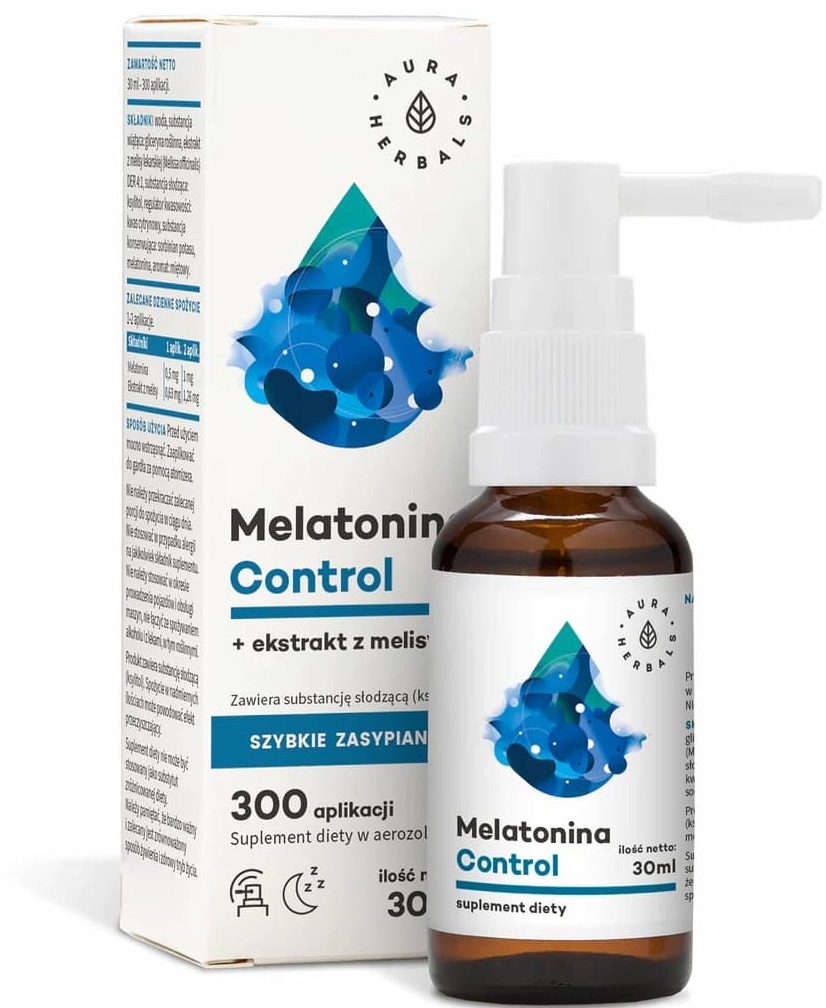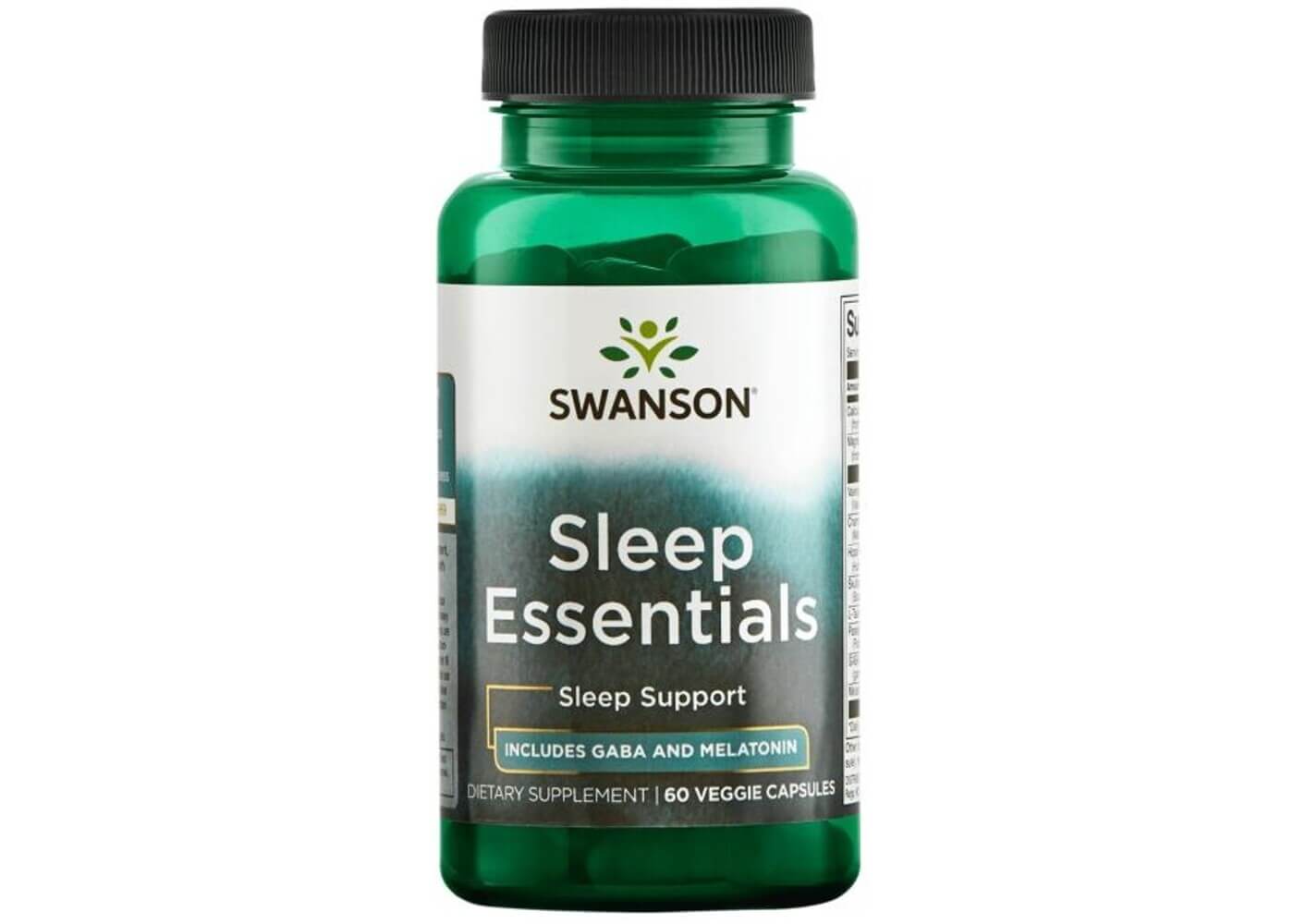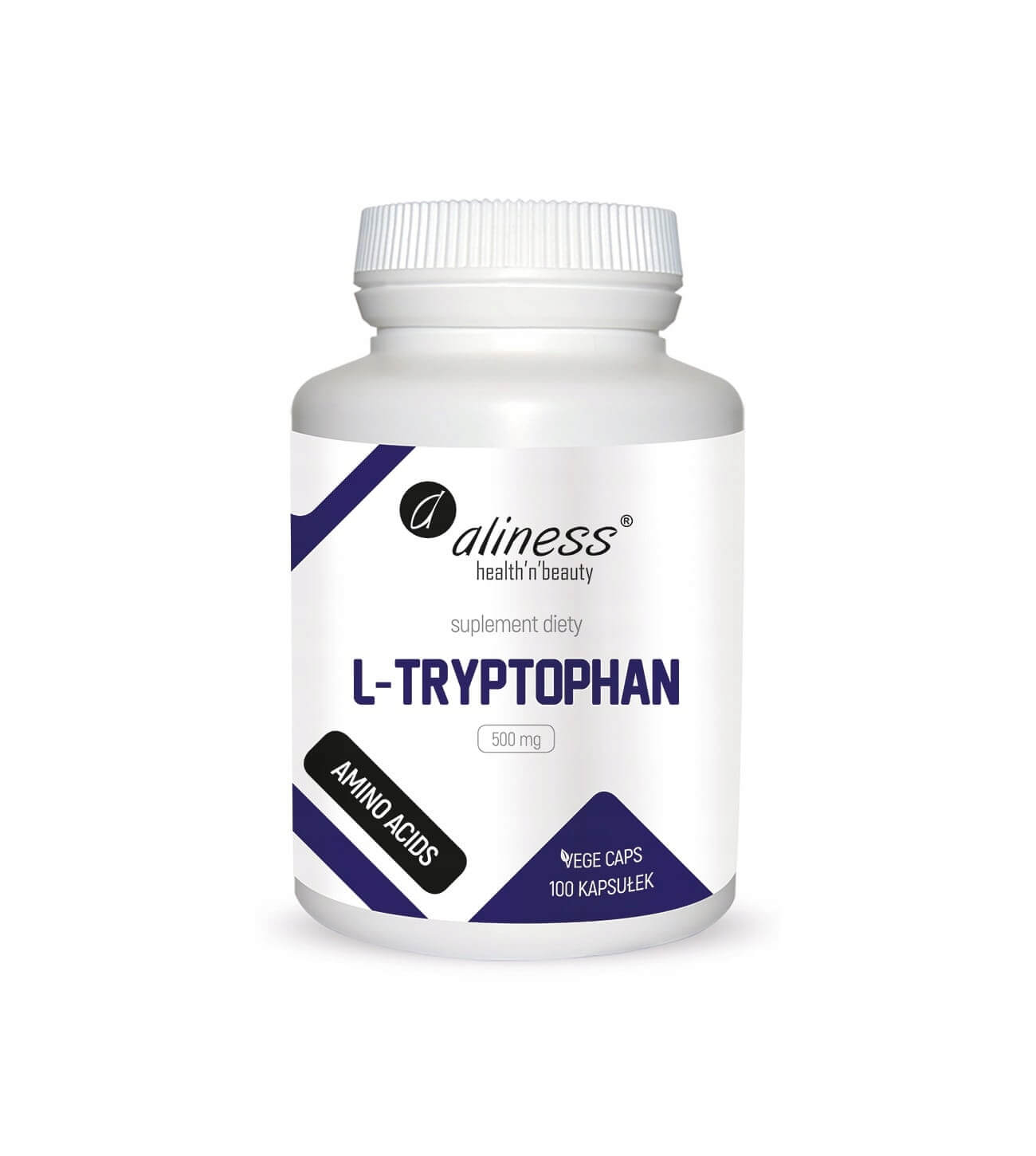Passionflower (passiflora) - properties, contraindications, side effects
Plants of the passion flower species (passiflora) can have a positive effect on our body. Find out what the scientific research says about this.


Learn more about our editorial process
.

Learn more about our editorial process
.

Learn more about our editorial process
.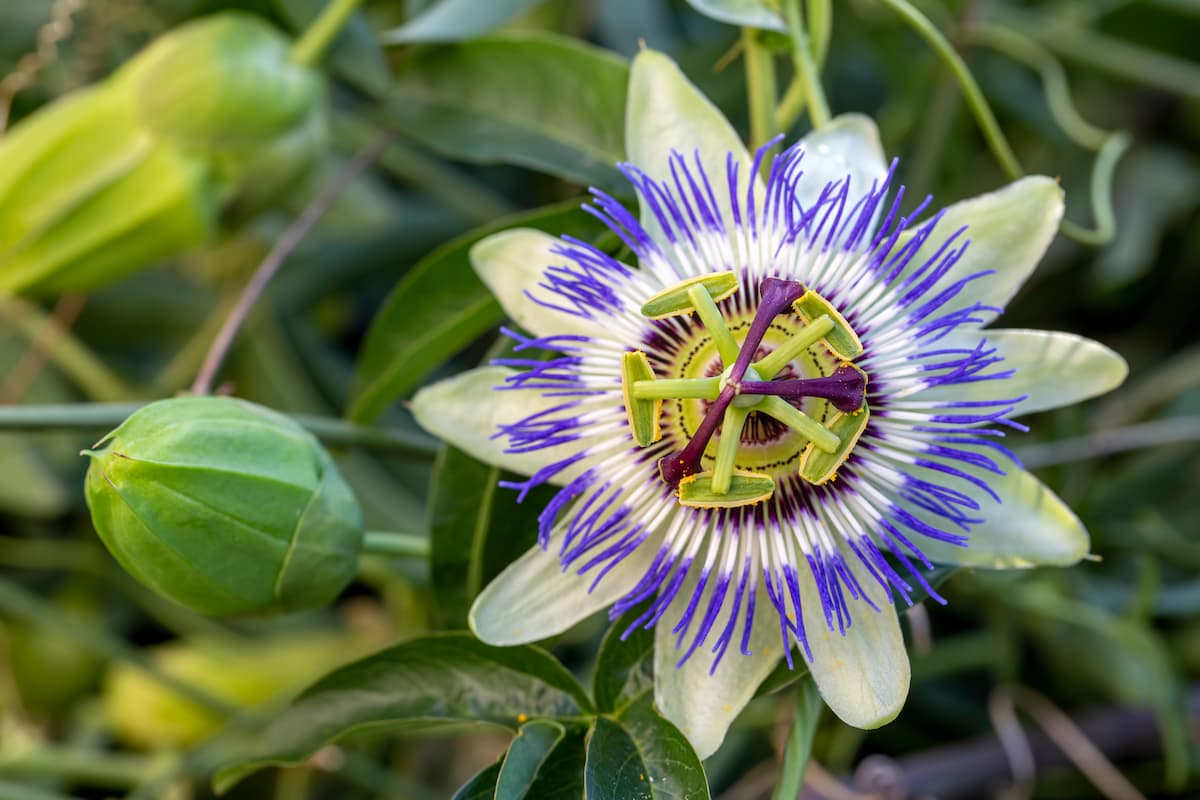
Why you can trust us
Articles on Natu.Care are written based on scientific research, data from government websites and other reliable sources. The texts are written in cooperation with doctors, nutritionists and other health and beauty experts. Articles are reviewed before publication and during significant updates.
.Learn more about our editorial process
.Information about advertisements
Content on Natu.Care may contain links to products from the sale of which we may receive a commission. When creating content, we adhere to high editorial standards and take care to be objective about the products discussed. The presence of affiliate links is not dictated by our partners, and we select the products we review ourselves completely independently.
.Learn more about our terms and Conditions
.Passionflower plants can strengthen our bodies and positively affect our wellbeing. Find out why they are so intriguing to scientists and anyone who wants to take charge of their health naturally.
Don't let the alarming name fool you. Passionflower plants are some of the most beautiful in the world - but it is their health-promoting properties that make them particularly interesting. Passionflower can help with sleep complaints, anxiety and also chronic stress. But it doesn't stop there...
From this article you will learn:
- What is passionflower and what properties it has .
- Who is recommended to use passionflower .
- What are the contraindications, interactions and side effects associated with taking passionflower .
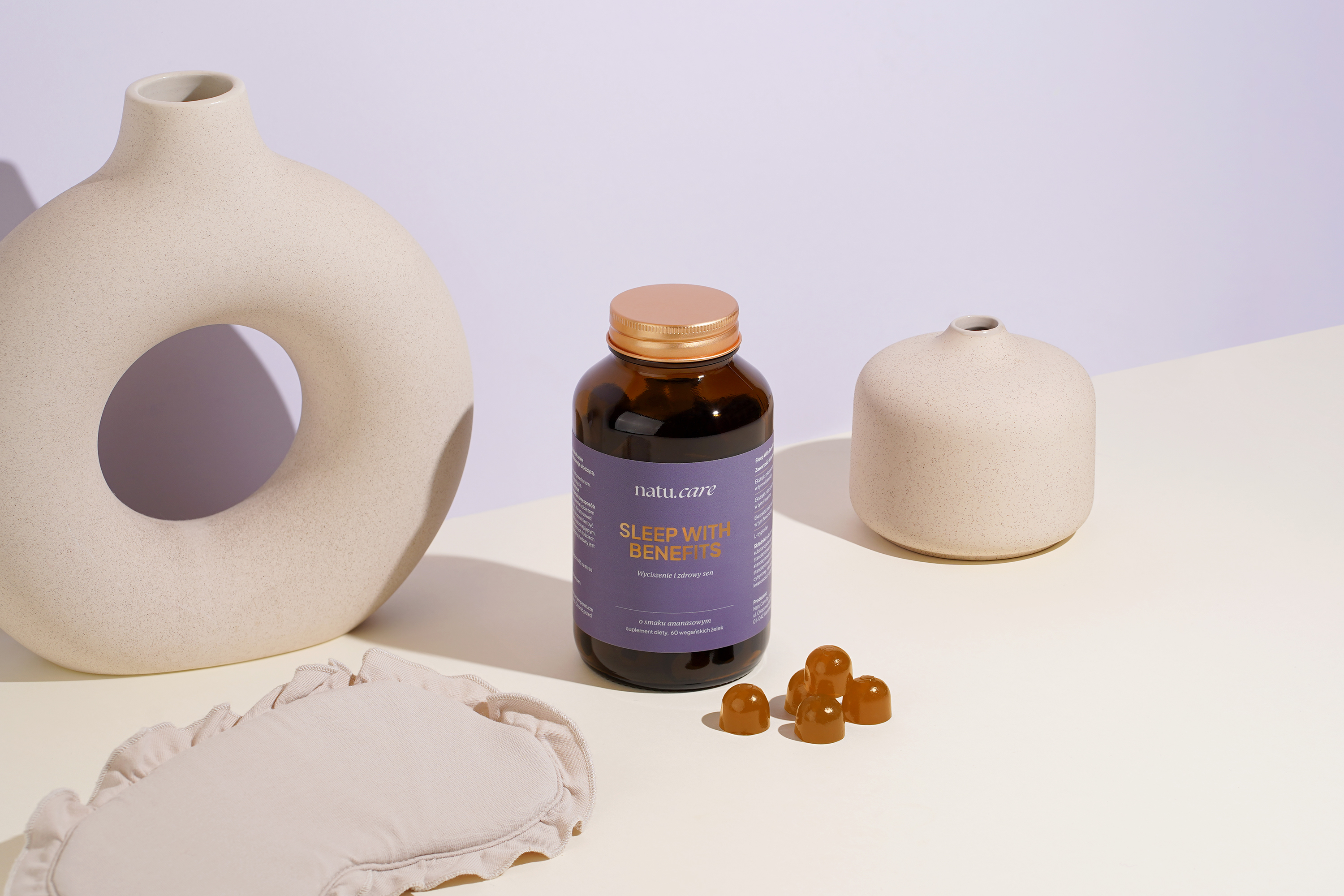
Sprawdź, za co pokochały go tysiące klientek Wegańskie żelki na sen, Ashwagandha KSM-66, ananas. -15% z kodem BLOG15
Wegańskie żelki na sen, Ashwagandha KSM-66, ananas
Wreszcie się wyśpisz! Wegańskie żelki na sen z najwyższej jakości ashwagandhą KSM-66®, ekstraktami ziołowymi i tryptofanem utulą Cię do snu.
Zobacz cenę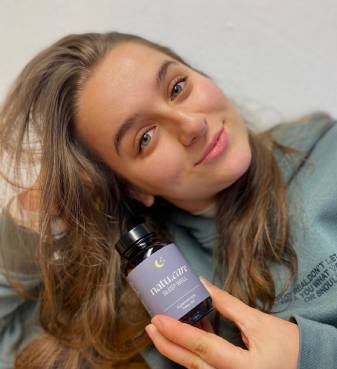
Bez problemu wstaje rano z budzikiem, co wcześniej się nie zdarzało, mam więcej energiiEwa Szczapinska
See also:
- Palea passionflower
- Wild rose
- Melatonin
- Melatonin for sleep
- Ashwagandha
- Adaptogens
- Berberine
- Piperine
- Ashwagandha
- Indian ginseng
- Kurcuma
- CBD
- Maccharion
- Caffeine
Passionflower (passiflora) - what is this plant?
.
Passiflora (Latin: Passiflora) is a plant native to regions in the intertropical and subtropical zones of North, Central and South Americaand.
There are more than 500 species of passion flower. The most popular of these are the fleshy passion fruit (passiflora incarnata), the blue passion fruit (passiflora caerulea) and the edible passion fruit (passiflora edulis sims). You will no doubt be familiar with the passion fruit. It is rich in antioxidants, fibre and vitamin A and vitamin C passion fruitand.
Passiflora owes its health-promoting properties to the present in it:
.
- flavonoids, .
- indole alkaloids, .
- glycosides, .
These are naturally occurring compounds in plants with proven beneficial effects on our body. They exhibit anti-inflammatory and antioxidant properties, prevent the development of many diseases and delay the signs of ageing in the bodyand.
You can read more about the best researched variety of passion fruit in the article: Passionflower (passiflora incarnata) properties and effects.
.Passionflower - properties
.
There are many scientific studies available worldwide on the different varieties of passionflower. The best researched is the fleshy passionflower. The results of the studies so far are encouraging and will especially please people struggling with prolonged stress, severe tension or sleep problemsand.
What does passionflower herb help with?
.
Sleep disorders
.
Sleep disorders are most commonlyand:
- problems falling asleep, .
- short and shallow sleep that does not regenerate the body, .
- frequent awakenings during the night, .
- insomnia, .
Research suggests that passionflower may help alleviate symptoms of sleep disorders through its anti-anxiety effectsand.
Passionflower increases the concentration of gamma-aminobutyric acid (GABA) in the brain. This compound reduces its activity, which has a relaxing effect on the mind and body. Easier falling asleep means a greater chance of blissful, undisturbed sleep.
Moderate sleep problems can also be helped by melatonin.
See:
.Anxiety disorders
.
Generalized Anxiety Disorder (GAD) is a mental health problem that manifests as, among other things, tension, anxiety, experiencing fear and significantly reduces the patient's quality of life and activitiesand.
GAD is most effectively treated with a combination of psychotherapy and pharmacotherapy. Research suggests that passionflower herb may prove to be an additional support in this process. Furthermore, the use of passionflower herb is not addictive and does not cause as many side effects as, for example, the benzodiazepines often used in GAD therapyand.
Stress and psychological distress
.
Research on passionflower suggests that it may increase gamma-aminobutyric acid (GABA). It lowers brain activity, which may facilitate relaxation, reduce mental tension and improve overall wellbeingand.
Learn how other plants can help you combat stress.
.Read the articles:
Ailments associated with menopause
.
Hot flashes during menopause are the bane of many menopausal women. Researchers have investigated the combination of passionflower with other herbs and their effect on relieving unpleasant menopausal symptoms. The results suggest that this natural combination of plants can alleviate annoying hot flashesand.
Pain of neurological origin
.
Neuralgia is the medical term for nervous system symptoms such as pain, numbness, tingling and burning in various parts of the body. The unpleasant discomfort is caused by a disruption or damage to the function of the nervous system.
Results to date are encouraging. In the future, this plant may be helpful in treating and alleviating the symptoms of these ailmentsand.
Gastrointestinal disorders
.
Some species of passionflower may help treat stomach problems. So far, in one study involving animals, researchers have investigated the potential of stink passionflower (passiflora foetida) to treat stomach ulcers. The results suggest that it has the potential to relieve these unpleasant symptoms. To confirm this, more studies involving humansand are needed.
Prevention of lifestyle diseases through antioxidant effects
.
Many substances contained in herbs have antioxidant potential due to the compounds they contain, such as flavonoids. In studies, passiflora foetida has shown high potential as an antioxidant and in the future may have applications in the prevention of various lifestyle diseases such as atherosclerosis and diabetesand.
More research with humans is needed to confirm passionflower's significant effect on the prevention of these diseases, but it cannot be denied the antioxidant potential highlighted by some studies .
Treatment of addiction
.
Research on a group of opiate and nicotine addicts suggests that passionflower in combination with medication (e.g. clonidine) may be helpful in reducing the unpleasant symptoms associated with withdrawal from these harmful substances .
Passionflower - uses
.
Passionflower is included in many medicines and nutritional supplements. They can be taken in the form of capsules, drops or aqueous extracts, among others. There are also compounded products on the market with calming and sleep-enhancing effectsand.
Popular compounded dietary supplements, in addition to passionflower, include:
.
- .
- melatonin, .
- vitamin B6,
- valerian root extract, .
- hop cone dry extract, .
- extract of lemon balm leaves, .
- extract of peppermint leaves, .
When is it worth reaching for passionflower herb?
.
Passionflower can help you ifand:
- You feel mentally tense and suffer from stress. .
- You have trouble calming down before sleep, falling asleep, or waking up frequently during the night.
- You have trouble calming down before sleep, falling asleep, or waking up frequently during the night.
- You suffer from neuropathic pain. .
- You are going through a difficult time of menopause. .
- You want to support your body naturally. .
Products with passionflower
Product description
A supplement to replenish melatonin deficiencies in the body with an interesting aerosol form. The combination of melatonin with gently calming melissa speeds up falling asleep and ensures a restful night's sleep.
Advised for people suffering from sleep problems, working night shifts and frequently changing time zones.
Pros and cons
A supplement to replenish melatonin deficiencies in the body with an interesting aerosol form. The combination of melatonin with gently calming melissa speeds up falling asleep and ensures a restful night's sleep.
Advised for people suffering from sleep problems, working night shifts and frequently changing time zones.
Additional information
A supplement to replenish melatonin deficiencies in the body with an interesting aerosol form. The combination of melatonin with gently calming melissa speeds up falling asleep and ensures a restful night's sleep.
Advised for people suffering from sleep problems, working night shifts and frequently changing time zones.
Sleep Essentials
Product description
The dietary supplement Sleep Essentials by Swanson is a product containing melatonin, enriched with ingredients of plant origin. Melatonin helps to shortenóthe time it takes to fall asleep. A beneficial effect occurs when 1 mg of melatonin is consumed shortly before going to bed. Chamomile supports physical and mental well-being and helps to relax and maintain healthy sleep.
Pros and cons
The dietary supplement Sleep Essentials by Swanson is a product containing melatonin, enriched with ingredients of plant origin. Melatonin helps to shortenóthe time it takes to fall asleep. A beneficial effect occurs when 1 mg of melatonin is consumed shortly before going to bed. Chamomile supports physical and mental well-being and helps to relax and maintain healthy sleep.
Additional information
The dietary supplement Sleep Essentials by Swanson is a product containing melatonin, enriched with ingredients of plant origin. Melatonin helps to shortenóthe time it takes to fall asleep. A beneficial effect occurs when 1 mg of melatonin is consumed shortly before going to bed. Chamomile supports physical and mental well-being and helps to relax and maintain healthy sleep.
Expert opinion
L-Tryptophan
Product description
Tryptophan is involved in the production of serotonin, the so-called happiness hormone. It is therefore responsible for a good moodóy and the proper functioning of internal organsóy. It can be used as an aid in the treatment of anxietyós and depressive conditions.
It is also a substrate in the production of melatonin, coordinating the work of the master biological clock - it regulates diurnal rhythms, including sleep and wakefulness, is responsible for maintaining the quality of sleep and allows regeneration.
Pros and cons
Tryptophan is involved in the production of serotonin, the so-called happiness hormone. It is therefore responsible for a good moodóy and the proper functioning of internal organsóy. It can be used as an aid in the treatment of anxietyós and depressive conditions.
It is also a substrate in the production of melatonin, coordinating the work of the master biological clock - it regulates diurnal rhythms, including sleep and wakefulness, is responsible for maintaining the quality of sleep and allows regeneration.
Additional information
Tryptophan is involved in the production of serotonin, the so-called happiness hormone. It is therefore responsible for a good moodóy and the proper functioning of internal organsóy. It can be used as an aid in the treatment of anxietyós and depressive conditions.
It is also a substrate in the production of melatonin, coordinating the work of the master biological clock - it regulates diurnal rhythms, including sleep and wakefulness, is responsible for maintaining the quality of sleep and allows regeneration.
Expert opinion
Dr Jacob's Melatonin + B12
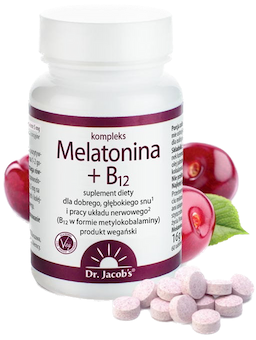
- Active ingredients: melatonin, vitamin B12
- Form: sucking pastilles .
- Dosage: 1 lozenge per day .
- Sufficient for: 60 days .
Product description
Sweet pleasures in the evening are rather forbidden. Well, unless it's cherry lozenges with melatonin and vitamin B12, whichóre going to improve the quality of your sleep.
One tablet in the evening will shorten your sleep time and stop you waking up.
One tablet in the evening will shortenóyour time to fall asleep and stop you waking up during the night. The addition of vitamin B12 will improve the functioning of the nervous system, making you even better rested.
The following tablets will help to improve the quality of your sleep.
Pros and cons
Sweet pleasures in the evening are rather forbidden. Well, unless it's cherry lozenges with melatonin and vitamin B12, whichóre going to improve the quality of your sleep.
One tablet in the evening will shorten your sleep time and stop you waking up.
One tablet in the evening will shortenóyour time to fall asleep and stop you waking up during the night. The addition of vitamin B12 will improve the functioning of the nervous system, making you even better rested.
The following tablets will help to improve the quality of your sleep.
Additional information
Sweet pleasures in the evening are rather forbidden. Well, unless it's cherry lozenges with melatonin and vitamin B12, whichóre going to improve the quality of your sleep.
One tablet in the evening will shorten your sleep time and stop you waking up.
One tablet in the evening will shortenóyour time to fall asleep and stop you waking up during the night. The addition of vitamin B12 will improve the functioning of the nervous system, making you even better rested.
The following tablets will help to improve the quality of your sleep.
User review
Sweet pleasures in the evening are rather forbidden. Well, unless it's cherry lozenges with melatonin and vitamin B12, whichóre going to improve the quality of your sleep.
One tablet in the evening will shorten your sleep time and stop you waking up.
One tablet in the evening will shortenóyour time to fall asleep and stop you waking up during the night. The addition of vitamin B12 will improve the functioning of the nervous system, making you even better rested.
The following tablets will help to improve the quality of your sleep.
Petal passionflower - contraindications
.
Plant-derived products are generally safe as long as they are consumed in healthy amounts and do not interact with other medicines, dietary supplements or herbs.
See below for information on when to be extra cautious if you want to try passionflowerand.
Pregnancy
.
Passionflower herb should not be consumed during pregnancy. The plant may induce uterine contractions and lead to premature birth .
Breastfeeding
.
Passionflower is not recommended for use during breastfeeding. Little is known about the safety of these plants and about their effects on a nursing babyand.
Sedative use
.
Parrot has an effect on the central nervous system. Caution should be exercised when using passionflower and other centrally acting drugs (e.g. sedatives or sleeping pills) at the same time. This can lead to excessive drowsiness and breathing problemsand.
If you are currently using herbal teas or other complex preparations with plant extracts, make sure that passionflower herb is not in their formulation. Excessive amounts of this plant are harmful to the body..
 .
.
Witold Tomaszewskidoctor of medical sciences
.Age of under 12 years
.
Passionflower herb is not recommended for use in children under 12 years of age. If your child is cranky, has trouble sleeping or you are concerned about other symptoms, see your GPand.
.
Driving and operating machinery
.
Passionflower herb may cause drowsiness. Are you using passionflower? Avoid driving and operating machineryand.
Passionflower - side effects
.
Can the consumption of passionflower herb be dangerous? Here is the opinion of Dr. Witold Tomaszewski, M.D..
.
Passiflora is considered a safe plant to use. However, it can cause unpleasant symptoms in some people. These complaints are most often the result of excessive consumption of passionflower or interactions with medicines, dietary supplements and herbs..
 .
.
Witold Tomaszewskidoctor of medical sciences
.Side effects that may occur includeand:
- insomnia, .
- dizziness, .
- disorientation, .
See also health articles:
.
- How to take care of your physical and mental health? .
- Thyroid testing
- Blood tests
- Cervical cancer .
- Liver
- Fatty (oily) liver
- Hepatic tests .
- How to take care of mental health ? .
Passionflower plants are of interest not only to natural medicine enthusiasts, but also to scientists. Research into the properties of passionflower is ongoing and it could be a future addition to the treatment of a number of ailments.
Summary
.
Ahead of you... a well-concentrated extract of the most important information from the article:
- Passiflora is a group of more than 500 plant species. The most popular and best researched of these is the passionflower.
- Passiflora is the most popular and best researched of these.
- Passiflora can be helpful in the treatment of sleep disorders, generalised anxiety, and has been shown to have a relaxing and calming effect.
- Passiflora is also known to help with sleep disorders and generalised anxiety.
- Passionflower herb has antioxidant effects - it protects the body against many diseases and can slow down the ageing process.
- The use of passionflower can support women during menopause, as it relieves the hot flashes that accompany menopause.
- Contraindications to the use of passionflower include: pregnancy, breastfeeding, age under 12 years, use of sedatives and sleeping pills. .
- Passionflower is considered safe for use, and unpleasant side effects are usually related to excessive consumption or interactions with medications or dietary supplements. .
FAQ
.What does passionflower work for?
.Passionflower has been shown to have sedative, anti-anxiety effects and to help with sleep. According to scientific studies, the active compounds in passionflower help to reduce stress and tension levels and promote sleep. Extracts of this plant are present in many dietary supplements for sleep.
Is passionflower healthy?
.Yes, passionflower (passiflora) is a plant with health-promoting effects on the human body. It shows a number of benefits especially for mental health. It alleviates symptoms of anxiety and anxiety, helps with sleep, and has a calming effect. Taken in appropriate doses, it is safe to use.
What does passionflower herb help with?
.According to scientific studies, passionflower herb helps to reduce anxiety and worry, supports the treatment of sleep disorders, relieves hot flashes during menopause, may relieve pain of neurological origin and may be helpful in reducing unpleasant symptoms associated with drug withdrawal.
After what time does passionflower take effect?
The sedative and sleeping effects of passiflora (mint) are felt within 30-90 minutes of ingestion. The stress- and anxiety-reducing effects can be felt after a few days. The best effects are achieved with regular consumption.
What not to combine passionflower with?
.Passionflower (passionflower) should not be combined with alcohol and drugs that affect the central nervous system such as benzodiazepines, sleep medication, antiepileptic drugs. Before using passionflower herb in any form, consult your doctor.
Does passionflower have an effect on sleep?
.Yes, passionflower has a positive effect on sleep. According to research, thanks to its anti-anxiety properties, it can alleviate symptoms of sleep disorders such as inability to fall asleep, frequent awakenings or insomnia. When used regularly before bedtime, it can improve the quality and length of sleep, promoting rest.
Does passionflower herb lower blood pressure?
.Yes, according to scientific studies, passionflower can lower on blood pressure and be helpful for hypertension. If you suffer from hypertension and are taking medication, consult your doctor before using passionflower so that the effects of the plant and the medication do not exacerbate each other.
What are the contraindications to the use of passionflower?
.Passionflower herb should not be used by pregnant women, breastfeeding women, children under 12 years of age and people taking medications that affect the central nervous system, e.g. sedatives, sleeping pills, benzodiazepines.
Is passion fruit edible?
.Whether passion fruit is edible depends on its species. Edible fruits have, for example, passion fruit (its fruit is passion fruit), granadilla, giant passion fruit and curaçao.
.
Sources
.See all
.Appel, K., Rose, T., Fiebich, B., Kammler, T., Hoffmann, C., & Weiss, G. (2011). Modulation of the γ-aminobutyric acid (GABA) system by Passiflora incarnata L. Phytotherapy Research: PTR, 25(6), 838-843. https://doi.org/10.1002/ptr.3352
Breivogel, C., & Jamerson, B. (2012). Passion flower extract antagonizes the expression of nicotine locomotor sensitization in rats. Pharmaceutical Biology, 50(10), 1310-1316. https://doi.org/10.3109/13880209.2012.674535
Colomeu, T. C., de Figueiredo, D., de Matos da Silva, P., Fernandes, L. G. R., & Zollner, R. de L. (2022). Antiproliferative and Pro-Oxidant Effect of Polyphenols in Aqueous Leaf Extract of Passiflora alata Curtis on Activated T Lymphocytes from Non-Obese Diabetic (NOD SHILT/J) Mice. Antioxidants, 11(8), Article 8. https://doi.org/10.3390/antiox11081503
Elsas, S.-M., Rossi, D. J., Raber, J., White, G., Seeley, C.-A., Gregory, W. L., Mohr, C., Pfankuch, T., & Soumyanath, A. (2010). Passiflora incarnata L. (Passionflower) extracts elicit GABA currents in hippocampal neurons in vitro, and show anxiogenic and anticonvulsant effects in vivo, varying with extraction method. Phytomedicine : international journal of phytotherapy and phytopharmacology, 17(12), 940-949. https://doi.org/10.1016/j.phymed.2010.03.002
Ghazanfarpour, M., Sadeghi, R., Abdolahian, S., & Latifnejad Roudsari, R. (2016). The efficacy of Iranian herbal medicines in alleviating hot flashes: A systematic review. International Journal of Reproductive Biomedicine, 14(3), 155-166.
Gossop, M. (1988). Clonidine and the treatment of the opiate withdrawal syndrome. Drug and Alcohol Dependence, 21(3), 253-259. https://doi.org/10.1016/0376-8716(88)90078-6
.Jaroszewski, J. W., Olafsdottir, E. S., Wellendorph, P., Christensen, J., Franzyk, H., Somanadhan, B., Budnik, B. A., Bolt Jørgensen, L., & Clausen, V. (2002). Cyanohydrin glycosides of Passiflora: Distribution pattern, a saturated cyclopentane derivative from P. guatemalensis, and formation of pseudocyanogenic α-hydroxyamides as isolation artefacts. Phytochemistry, 59(5), 501–511. https://doi.org/10.1016/S0031-9422(01)00485-X
Li, Z., Ma, L., Zhao, Y., & Li, C. (2023). Teaching NeuroImage: Intraventricular Fetus-in-Fetu With Extensive De Novo Gain in Genetic Copy Number. Neurology, 100(9), 444–445. https://doi.org/10.1212/WNL.0000000000201578
Menon, V. P., & Sudheer, A. R. (2007). ANTIOXIDANT AND ANTI-INFLAMMATORY PROPERTIES OF CURCUMIN. IN B. B. Aggarwal, Y.-J. Surh, & S. Shishodia (Eds.), The Molecular Targets and Therapeutic Uses of Curcumin in Health and Disease (Vol. 595, pp. 105-125). Springer US. https://doi.org/10.1007/978-0-387-46401-5_3
Munir, S., & Takov, V. (2022). Generalized Anxiety Disorder. In StatPearls. StatPearls Publishing. http://www.ncbi.nlm.nih.gov/books/NBK441870/
.Neuropathic Pain: From Mechanisms to Treatment | Physiological Reviews. (n.d.). Retrieved March 15, 2023, from https://journals.physiology.org/doi/full/10.1152/physrev.00045.2019
Panossian, L. A., & Avidan, A. Y. (2009). Review of Sleep Disorders. Medical Clinics of North America, 93(2), 407-425. https://doi.org/10.1016/j.mcna.2008.09.001
Passionflower in the treatment of opiates withdrawal: A double-blind randomized controlled trial-Akhondzadeh-2001-Journal of Clinical Pharmacy and Therapeutics-Wiley Online Library. (n.d.). Retrieved 15 March 2023, from https://onlinelibrary.wiley.com/doi/abs/10.1046/j.1365-2710.2001.00366.x
Sanders, K. (2020). Investigating the Short-term Effects of Passiflora Incarnate and Mobile Audio-guided Meditation on Blood Pressure and Heart Rate in Naturopathic Medical Students (Clinical trial registration No NCT03953469). clinicaltrials.gov. https://clinicaltrials.gov/ct2/show/NCT03953469
Ullah, A., Munir, S., Badshah, S. L., Khan, N., Ghani, L., Poulson, B. G., Emwas, A.-H., & Jaremko, M. (2020). Important Flavonoids and Their Role as a Therapeutic Agent. Molecules, 25(22), Article 22. https://doi.org/10.3390/molecules25225243
..
Editorials
Meet the team

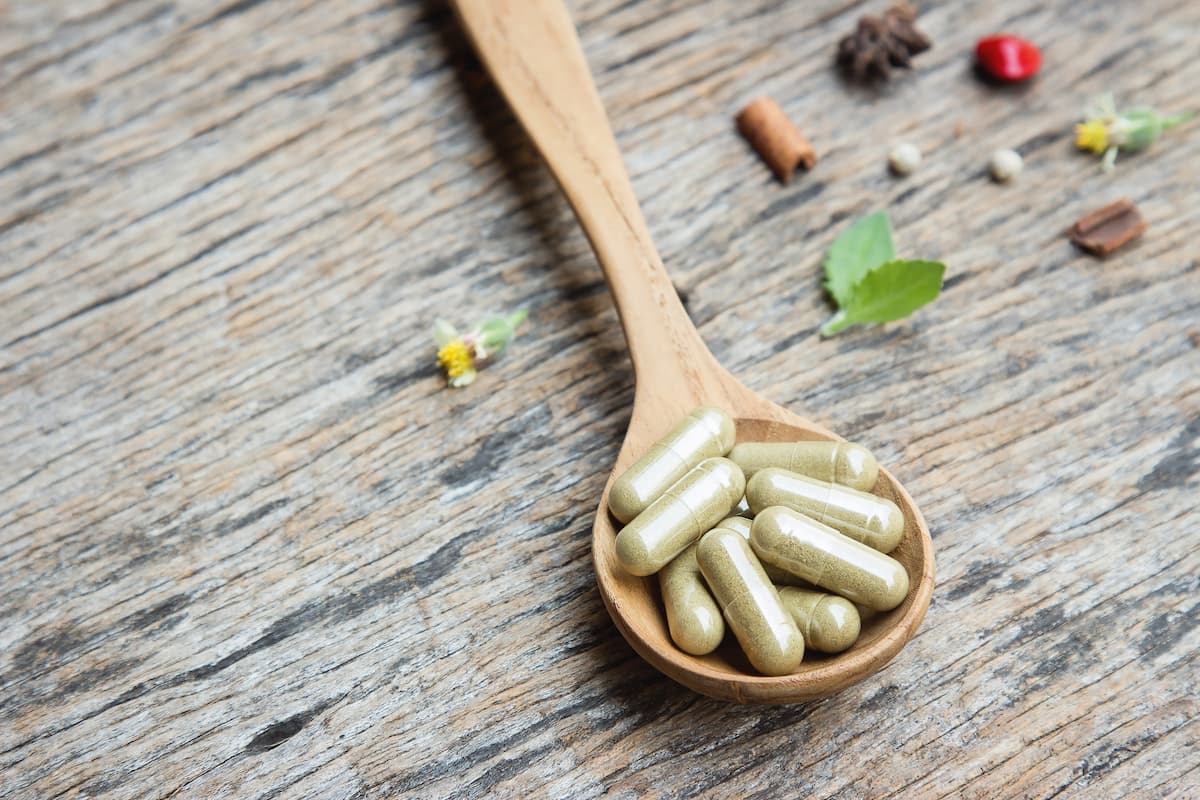
Ashwagandha affects thyroid hormone levels. Find out if you can use it.
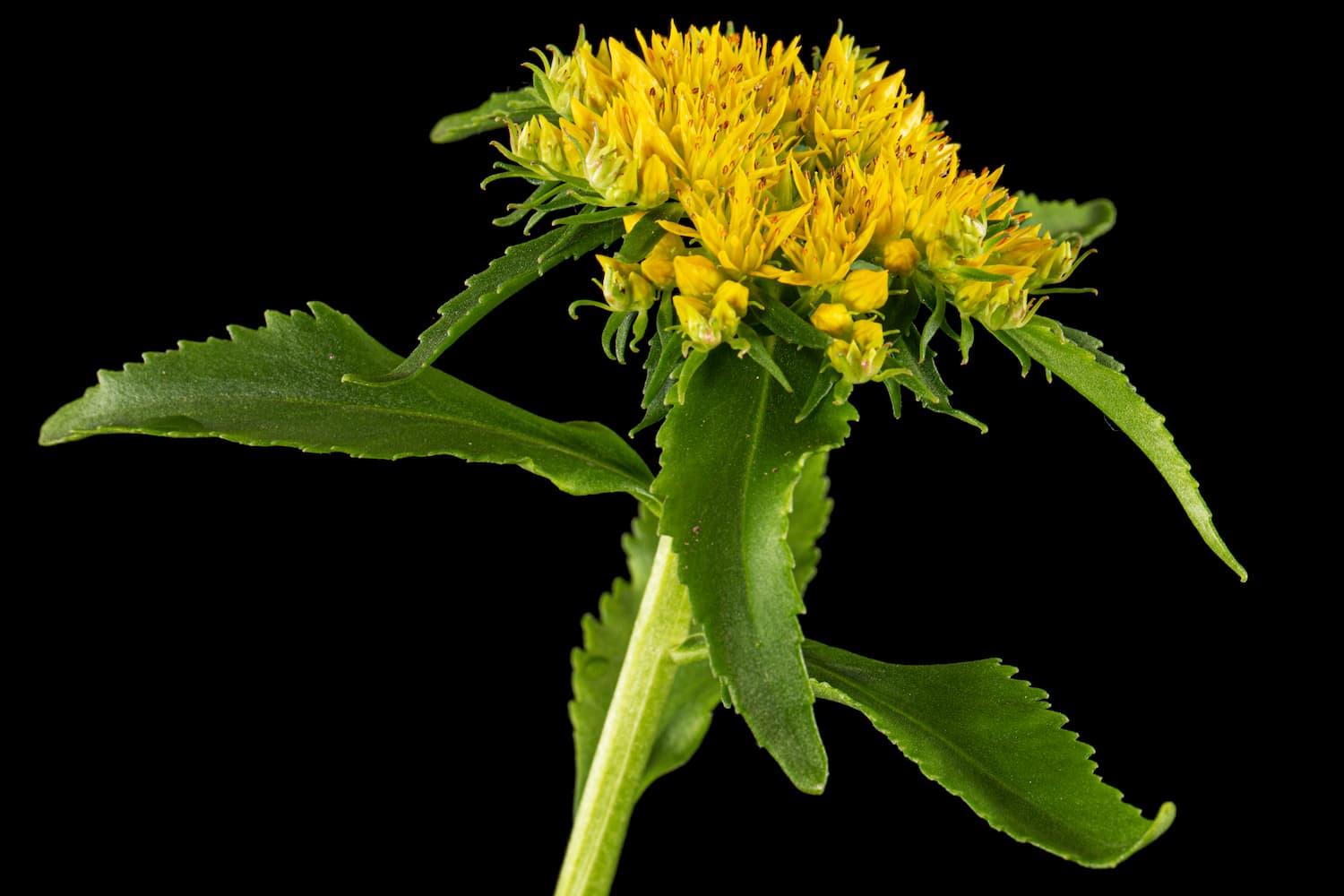
See how mountain pintail can affect your wellbeing.

Check out the opinions of doctors and other professionals about ashwagandha. Also find out what people on the forum think about it.
